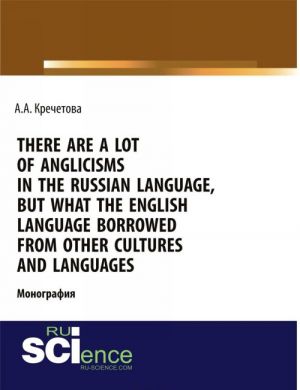This book examines the main reasons, methods, sources and stages of borrowing the English vocabulary into Russian in different historical periods, signs of borrowed words and so-called slang are singled out, and various spheres of using Anglicisms and their perception by the Russian-speaking population are covered. The problem faced by many students especially adults is why there are so many words in English which don't lend themselves to reading rules. It's all about their origin, namely, borrowing from other languages. In this book the English language itself is studied in details, from which cultures and languages (Celtic, Latin, French, Scandinavian, Greek, German, Dutch, Italian, Spanish, Portuguese, Arabic, Persian, Russian languages) words were borrowed in different time, their classification is carried out by the degree of assimilation and by source of borrowing, the main methods of borrowing the words are singled out.
This book examines the main reasons, methods, sources and stages of borrowing the English vocabulary into Russian in different historical periods, signs of borrowed words and so-called slang are singled out, and various spheres of using Anglicisms and their perception by the Russian-speaking population are covered. The problem faced by many students especially adults is why there are so many words in English which don't lend themselves to reading rules. It's all about their origin, namely, borrowing from other languages. In this book the English language itself is studied in details, from which cultures and languages (Celtic, Latin, French, Scandinavian, Greek, German, Dutch, Italian, Spanish, Portuguese, Arabic, Persian, Russian languages) words were borrowed in different time, their classification is carried out by the degree of assimilation and by source of borrowing, the main methods of borrowing the words are singled out.













